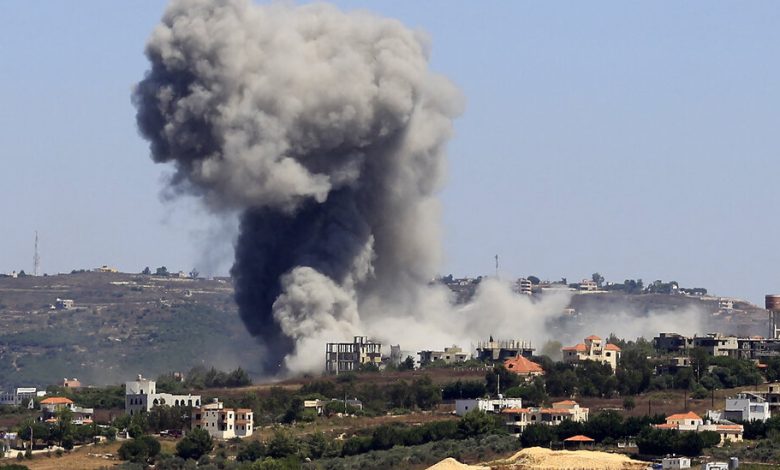Escalation Between Israel and Hezbollah Puts Pressure on Gaza Cease-Fire Talks

When intelligence chiefs of the United States, Israel and Egypt went to Qatar on Wednesday for talks aimed at brokering a cease-fire in Gaza, there was more on the line than Israel’s war against Hamas. The talks are being watched closely by Hezbollah leaders in Lebanon, and the question of whether a second full-blown war will erupt in Israel’s north may also hang in the balance.
Hezbollah’s leader, Hassan Nasrallah, made it clear on Wednesday that “the only way” to stop the cross-border hostilities between his group and Israel was to negotiate an end to the fighting in Gaza. Hezbollah and Hamas are both allied with Iran in what they call “the axis of resistance,” a coalition that opposes Israel’s right to exist.
“Hamas is negotiating on its own behalf and on behalf of the entire resistance axis, and what Hamas accepts, we accept,” Mr. Nasrallah said in a televised speech.
Israeli forces and Hezbollah fighters in Lebanon, who are backed by Iran, have traded fire since the war in Gaza began after Hamas led an attack on Israel on Oct. 7. About 150,000 people in northern Israel and southern Lebanon have fled their homes because of the fighting, and world leaders are worried that continued hostilities could quickly spiral into a full-fledged war that further destabilizes the already fraught region.
Mr. Nasrallah, in his speech, referred to these concerns, noting that “many delegations” from the international community have visited Lebanon to discuss defusing tensions. “We repeated the same words: If you want to stop the northern front, stop the fire in Gaza,” he said.
But the cease-fire talks have been halting, and the fighting between Israel and Hezbollah — cross-border attacks with drones, rockets and airstrikes — has escalated in recent weeks, heightening fears that a wider war may be imminent.